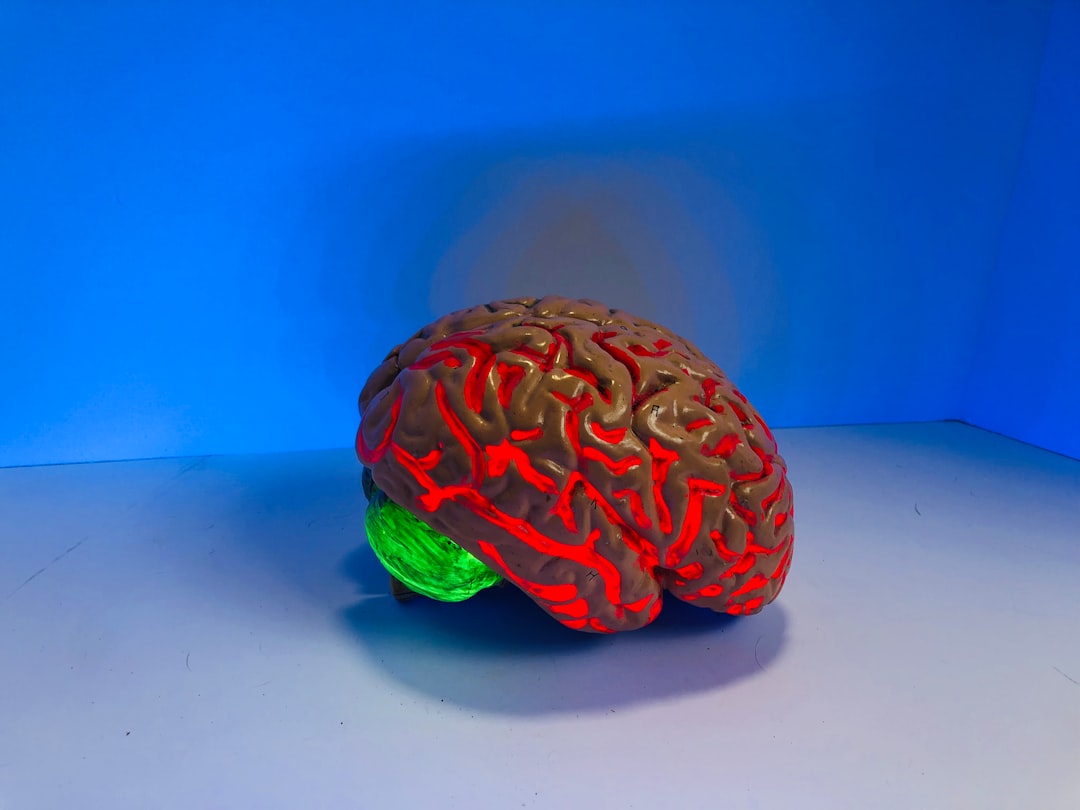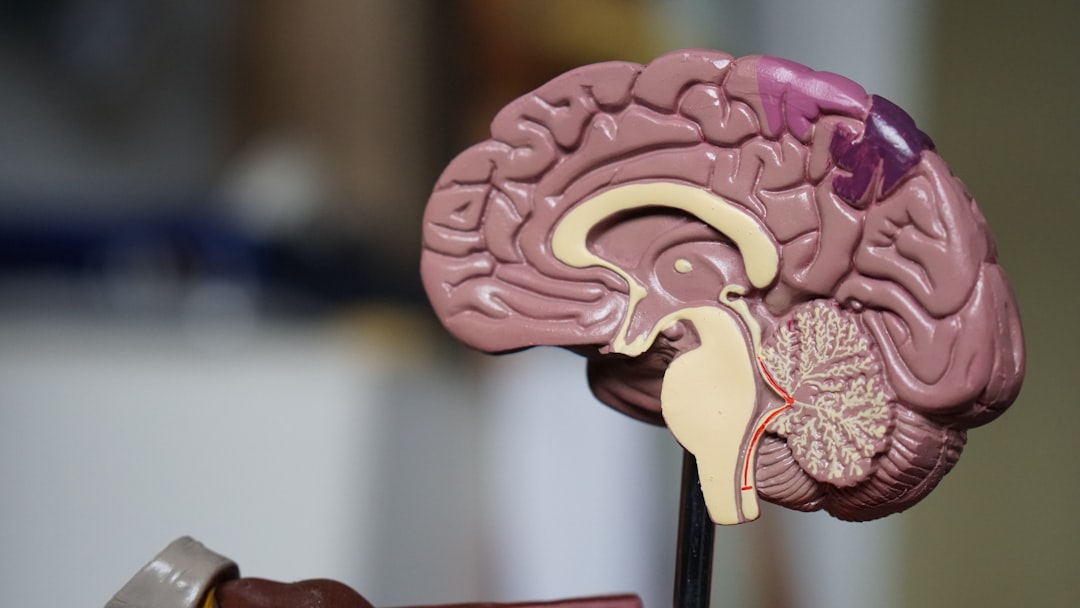The Neuroscience Behind Growth Mindset Self-Assessment New Findings in 2024
The Neuroscience Behind Growth Mindset Self-Assessment New Findings in 2024 - Neural Plasticity Insights from 2024 Brain Imaging Studies
The year 2024 has brought about a wave of breakthroughs in brain imaging, offering an unprecedented view into the dynamic landscape of neural plasticity. Researchers are now able to delve deeper than ever before into the intricate processes that govern how our brains adapt and change in response to experience. This enhanced level of detail has shed light on previously unknown mechanisms underlying neural plasticity, pushing the boundaries of our understanding of how the brain learns and grows.
One area of particular focus has been the relationship between neural plasticity and cognitive concepts like the growth mindset, a belief in one's ability to improve and learn. While the relationship between brain changes and mindset is still being unraveled, recent studies have shown promising evidence that cognitive training can indeed influence brain activity associated with growth mindset attributes, particularly in children. However, the quest to achieve long-lasting neuronal changes remains a significant challenge for researchers, demanding innovative approaches to manipulate brain activity.
The intersection of neuroscience and technology has proven instrumental in these advancements. The ongoing efforts of the NIH BRAIN Initiative, aimed at creating a comprehensive map of neural connections, represent the ambitious vision of understanding the intricate wiring of the brain. Such initiatives are not only illuminating the fundamental mechanisms of brain function, but also opening new avenues for addressing critical societal needs in education and personal development.
It's fascinating to see how 2024 brain imaging studies continue to illuminate the dynamic nature of our brains. These studies are pushing the boundaries of what we know about neural plasticity, demonstrating that even in adulthood, our brains are remarkably adaptable and capable of restructuring in response to experiences and learning.
The fact that complex cognitive tasks can trigger the rapid formation of new synapses within hours is particularly noteworthy, highlighting the brain's inherent capacity to learn and adapt. These findings also suggest that our mental activities, especially those involving problem-solving and learning, have a direct impact on the physical structure of our brains.
The link between emotional resilience and increased neural plasticity is a compelling development. The studies seem to imply that individuals with a growth mindset may experience more profound structural changes in brain areas related to learning and memory. This reinforces the importance of cultivating a positive attitude towards challenges and learning.
While the research into bilingualism and its impact on neural plasticity is exciting, I'm a bit skeptical about some of the claims. While enhanced multitasking and cognitive flexibility are attractive possibilities, we need to be cautious about interpreting these findings without further research.
It's also intriguing to observe how mindfulness practices are linked to increased cortical thickness in areas associated with emotional regulation. This reinforces the idea that mental exercises can have lasting effects on the brain. However, it's crucial to remember that correlation doesn't necessarily equate to causation.
I'm particularly interested in the observations about the impact of social interactions and feedback on neural plasticity. These findings suggest that collaboration and constructive feedback are critical factors in fostering learning and enhancing brain function. This area of research holds significant potential for improving educational practices and training methodologies.
The complexity of stress and its interaction with neural plasticity remains a fascinating and challenging area of investigation. It appears that acute stress might sometimes trigger faster adaptations in certain brain regions, but chronic stress could hinder plasticity. Understanding these nuanced relationships will be critical for promoting optimal brain function and mental well-being.
Overall, the 2024 brain imaging studies continue to paint a more nuanced and dynamic picture of the brain, emphasizing its remarkable adaptability and responsiveness to various influences. This research is crucial for developing effective learning strategies, fostering mental resilience, and promoting overall brain health.
The Neuroscience Behind Growth Mindset Self-Assessment New Findings in 2024 - Impact of Online Self-Assessment Tools on Academic Performance
The impact of online self-assessment tools on academic performance is a topic gaining traction among researchers. These tools provide students with the ability to independently evaluate their knowledge and skills, a critical component of self-regulated learning. While research shows a connection between self-assessment and improved learning, there's much to explore about the intricacies of how online self-assessment works within various educational settings. The effectiveness of these tools is likely influenced by factors like the educational level of the students and the specific methods of using self-assessment. While early research suggests a link between self-assessment and academic success, there's still a need for more detailed studies to fully understand how these online tools impact students in various online learning environments.
The impact of online self-assessment tools on academic performance is a fascinating area to explore. These tools offer the promise of increased self-awareness, potentially leading to better-tailored learning strategies. Studies suggest that engaging with self-assessment can boost student motivation, giving them a sense of control over their learning. However, there's a potential downside - over-reliance on these tools might lead to cognitive overload, potentially hindering academic progress.
The real-time feedback offered by these tools seems to be beneficial, allowing for timely adjustments to study habits and strategies. This immediate feedback could lead to improved academic performance. It's intriguing to see that some research indicates students are influenced by peer benchmarking when using online self-assessment tools. This competition could motivate and enhance performance, but it might also negatively affect self-esteem for some students.
It's also encouraging to see the potential for these tools to bridge educational gaps by providing personalized resources for underserved students. However, it's important to consider the ethical implications. Issues regarding data privacy and the potential misuse of personal information must be addressed to ensure responsible implementation in academic settings.
Research into the temporal effects of these tools is also intriguing. While immediate post-assessment performance often shows improvement, the sustained academic benefits depend on continued use and integrating feedback into learning routines. Some studies suggest these tools may even reduce test anxiety by normalizing the evaluative process, making students feel more prepared and less stressed during assessments.
Overall, there's a lot to unpack in the relationship between online self-assessment tools and academic performance. While the research seems promising, we need more studies to delve deeper into the nuances of this relationship and determine how to optimize their use in various educational contexts.
The Neuroscience Behind Growth Mindset Self-Assessment New Findings in 2024 - Correlation Between Growth Mindset and Resilience in Failure Scenarios
The link between having a growth mindset and being resilient in the face of failure is an area of growing interest, especially in light of new findings from neuroscience research in 2024. People who adopt a growth mindset tend to view failure not as a final outcome, but as an opportunity to learn and improve. This seems to make them more resilient when things don't go their way. It appears that this mindset can actually lessen the negative effects of stress and mental health issues often linked to failure, leading to a more adaptable way of coping with setbacks in academic and personal life. Importantly, recent discoveries suggest that developing this kind of mindset can lead to changes in the brain's structure that improve emotional resilience. This highlights how our beliefs and how our brains function are deeply interconnected. Understanding this relationship between mindset and resilience is essential for figuring out ways to help people grow and learn.
The idea that a growth mindset fosters resilience is intriguing, but it's a complex relationship. Recent brain imaging studies are giving us a clearer picture of what's going on at a neural level. It seems that those with a growth mindset might actually experience greater activity in brain areas associated with emotional control and memory when facing failure. This suggests that they might be more equipped to deal with setbacks on a neurological level.
The concept of "failure reinterpretation" is also interesting. It seems that people with a growth mindset don't necessarily see failure as a negative thing – instead, they see it as a learning opportunity. This kind of cognitive reappraisal might help them stay motivated and keep trying even when things get tough. It's also worth noting that a growth mindset could actually help people recover from stress more quickly, thanks to enhanced activation of the prefrontal cortex, which is crucial for decision-making and emotional control.
However, it's crucial to remember that individual variability plays a role here. Some people might be naturally more resilient than others, and their prior experiences can influence how they respond to failure. While cultivating a growth mindset can definitely be helpful, it's not a magic bullet. We still need more research to understand how to effectively teach and integrate this concept in educational settings, especially when considering the potential limitations of mindset training without practical application.
The Neuroscience Behind Growth Mindset Self-Assessment New Findings in 2024 - Transparency in Growth Mindset Interventions Educational Best Practices
The push for greater transparency in growth mindset interventions has gained momentum in recent discussions about educational best practices. The goal of these interventions is to promote the belief that abilities can be developed through hard work and dedication, but their effectiveness has been found to be uneven due to various factors, including the quality of the intervention itself and the specific educational context in which it's applied. Transparency, involving clear reporting of both the processes and the outcomes of these interventions, is crucial to address issues like reporting bias and misalignment with educational goals. This transparency ensures that interventions are not only scientifically sound but also align with the needs and goals of the educational setting. A key aspect of this transparency is establishing clear and consistent metrics for evaluating the fidelity of these interventions, which allows educators to effectively measure their impact and make informed adjustments. This is particularly relevant given the expanding knowledge of the intricate connections between mindset, motivation, and learning that are being revealed by neuroscience research. By embracing transparency in their implementation, growth mindset interventions can potentially be more effective across a wider range of educational contexts.
Transparency in growth mindset interventions is a fascinating area with a lot of potential. Research shows that when things are clear and open, students are more engaged in their learning. It's like they feel more in control and responsible for their progress.
One of the key aspects is the use of feedback. When feedback is transparent, it allows students to see exactly where they stand, identify what they need to improve, and actually use that information to learn. It’s like they have a roadmap to success.
Transparency can also help ease some of the cognitive pressure that students feel. When things are clear, they can focus on learning instead of figuring out what is expected of them. This also helps them understand that errors are just part of the learning process, rather than something to fear. It seems to shift their focus from anxiety to a more positive approach to challenges.
It's interesting that transparency can even affect how students interact with each other. When they know what's going on and feel comfortable sharing their thoughts and ideas, learning becomes a collaborative process. They learn from each other, and the social aspect of learning seems to be reinforced.
However, there are some ethical considerations. We need to make sure that when we're using technology to track student progress, we're doing it in a way that respects their privacy. It’s important to use these tools in a way that’s responsible and doesn’t violate their trust.
The most exciting part is that we can use brain imaging to study how these interventions are actually affecting the brain. This can help us see if there are changes in areas linked to learning, motivation, and emotional well-being.
Overall, the use of transparency in growth mindset interventions is promising, but it's still an area with a lot to explore. We need more research to understand how to best implement these strategies and ensure they’re working effectively for everyone.
The Neuroscience Behind Growth Mindset Self-Assessment New Findings in 2024 - Neuroplasticity Education as a Catalyst for Student Motivation
Neuroplasticity education is emerging as a powerful tool for boosting student motivation. By teaching students about the brain's remarkable ability to change and adapt, educators can inspire a belief that learning potential is not fixed, but can be expanded through effort and persistence. This realization can lead to greater resilience and intrinsic motivation in students, especially those who might be struggling. While research indicates positive outcomes, particularly in subjects like math, it's crucial to carefully evaluate these approaches to ensure their effectiveness and suitability for various learning environments. As we delve deeper into the relationship between neuroplasticity and motivation, we may uncover even more powerful strategies for empowering learners.
Neuroplasticity education is about more than just improving cognitive skills, it can also impact emotional intelligence. Studies suggest that promoting a growth mindset might lead to students becoming more empathetic and socially adept.
The impact of neuroplasticity education is observable within the brain itself. Research shows increased density of gray matter in areas related to memory and learning after only a few weeks of specific mental exercises. This highlights the direct link between mindset and physical changes in the brain.
One fascinating discovery is that simply believing in neuroplasticity can trigger physical changes. Students who understand that their brains can change demonstrate increased motivation and a willingness to tackle challenges.
The role of dopamine in learning underscores the connection between neuroplasticity and motivation. When students achieve small successes, dopamine is released, further encouraging engagement and persistence.
Research shows that socio-emotional learning interventions, which incorporate principles of neuroplasticity, can significantly reduce dropout rates among students. This is because they teach resilience and coping skills needed to overcome academic challenges.
These studies demonstrate that neuroplasticity education is not only about improving academic performance, but also promoting mental health. Enhanced resilience and adaptive responses to stress are directly linked to improvements in neural connections.
Classrooms that cultivate a growth mindset based on neuroplasticity principles have shown improvements in student collaboration. These students feel comfortable sharing ideas and learning from one another without fear of judgment.
Mindfulness practices combined with neuroplasticity education have shown to significantly improve students’ focus and attention, highlighting the connection between emotional regulation and cognitive function.
Long-term studies suggest that integrating neuroplasticity concepts into regular lesson plans promotes lifelong learning habits. This fosters a deep-rooted belief that abilities can be continuously developed.
Ultimately, the nuances of educator feedback can amplify the effects of neuroplasticity training. Timely and constructive feedback not only reinforces learning, but also modifies students’ neural pathways, enhancing motivation and engagement.
The Neuroscience Behind Growth Mindset Self-Assessment New Findings in 2024 - Applications of Growth Mindset Theory in Health and Wellness Contexts
In 2024, there's been a growing interest in applying growth mindset theory to health and wellness. It's no longer just for classrooms, it's now being seen as relevant to our overall well-being. People who believe they can improve, who see challenges as opportunities, are better at coping with stress and adversity. This approach not only helps with managing anxiety and depression, it can also motivate people to make healthier choices in their daily lives. The connection between mindset and health is becoming clearer, and there's a lot of potential for promoting growth mindset as a key tool for living a more balanced and fulfilling life.
The year 2024 has seen a surge in research exploring the connection between growth mindset and its potential impact on health and wellness. We're learning that having a growth mindset, believing in your ability to learn and grow, isn't just a mental construct but might actually be reflected in physical changes in the brain. Brain imaging studies are showing structural differences in regions associated with learning and emotional regulation in people with a growth mindset, which is fascinating.
There seems to be a strong link between a growth mindset and self-efficacy. People who believe they can learn and grow tend to believe they can achieve their goals. This confidence can translate into healthier choices like regular exercise or mindful eating. It's not just about what we believe, but also what we do.
Mindfulness practices, which focus on attention and awareness, seem to be a good complement to a growth mindset. Studies suggest that mindfulness combined with a growth mindset can create a more resilient and adaptable mind, which is particularly important for managing stress.
The concept of a growth mindset might also help us deal with pressure better. Research indicates that individuals with a growth mindset perform better in high-pressure situations. This might be helpful for athletes, professionals, or anyone facing stressful challenges. It's intriguing how our brains can adapt to demanding situations.
What we learn from the people around us can significantly affect our mindset. Social support, encouragement, and positive interactions seem to foster a growth mindset. This highlights the role of community in building resilience and positive change.
Interestingly, exercise might be another way to enhance neuroplasticity, the brain's ability to change and adapt. Physical activity seems to work in tandem with a growth mindset to improve cognitive function and overall well-being.
Having a growth mindset appears to play a role in resilience, particularly in overcoming setbacks. It seems to lessen anxiety, promoting better coping strategies for dealing with health and wellness challenges.
Cognitive behavioral therapy (CBT) techniques are also being used to incorporate growth mindset principles. It seems that CBT, which focuses on changing thoughts and behaviors, can improve adherence to health regimens. This underscores the power of understanding how our thoughts affect our actions.
Neuroplasticity education is becoming increasingly popular as a way to inspire students to learn and grow. The idea is that by teaching kids about the brain's amazing ability to change, we can boost their motivation and lead them toward healthier choices.
It's still early days, but long-term studies show that fostering a growth mindset from a young age might lead to lifelong habits that promote both physical and mental well-being. This suggests that having a growth mindset can positively shape our lives in the long run.
We're just starting to understand the intricate relationship between growth mindset and well-being. Further research is needed to uncover the full potential of these findings and how we can use them to improve our lives.
More Posts from psychprofile.io:
- →The Unique Vasovagal Response in Blood-Injection-Injury Phobia Understanding the Two-Phase Cardiovascular Pattern
- →New Neural Networks Reveal Hidden Biases A Deep Dive into AI-Powered Implicit Association Analysis
- →The Evolutionary Biology Behind Waist-to-Hip Ratio Preferences in Female Body Types
- →The Crucial Role of Replication in Psychological Research Ensuring Reliability and Advancing the Field
- →Advances in Biomarker Analysis Improving Differential Diagnosis of Alzheimer's Disease in 2024
- →The Neuroplasticity of Core Identity How Life Experiences Shape Our Fundamental Self





